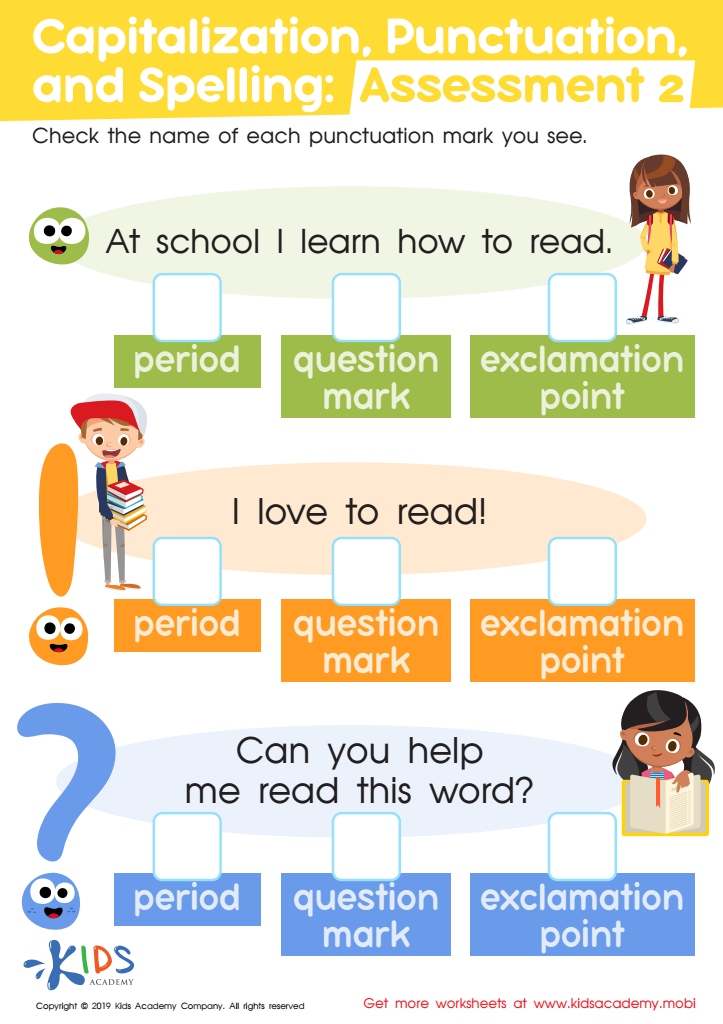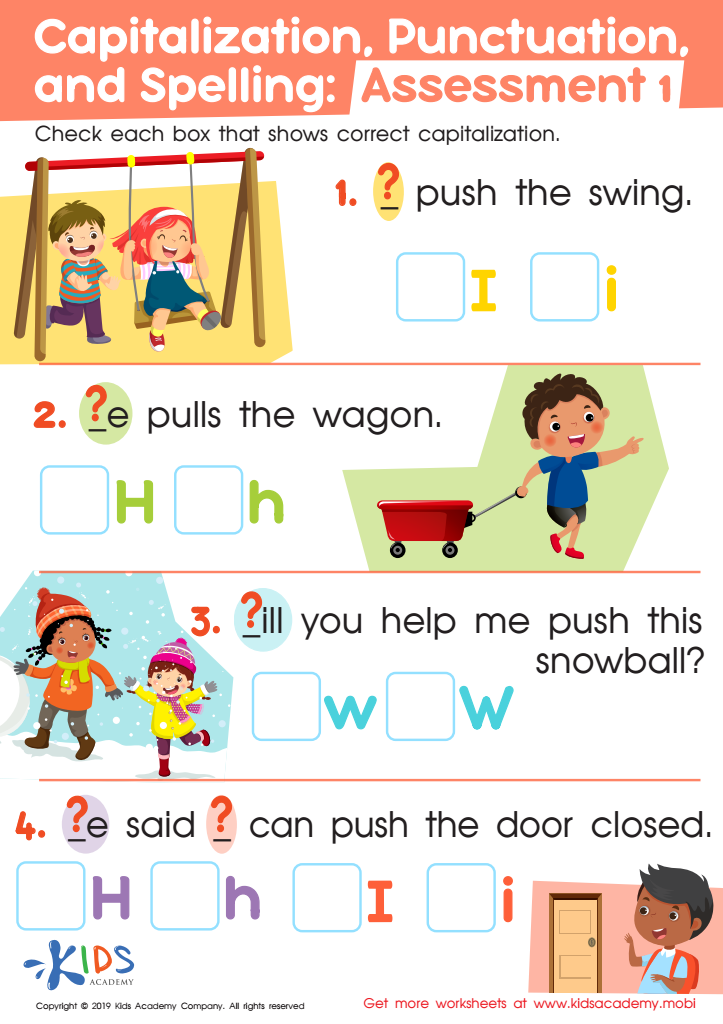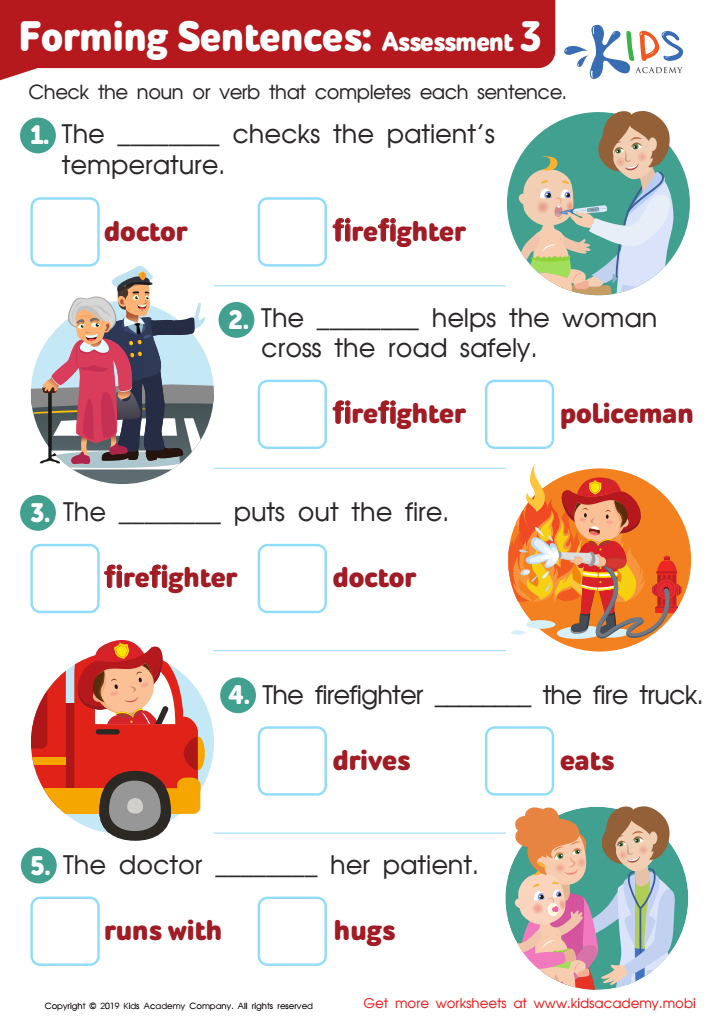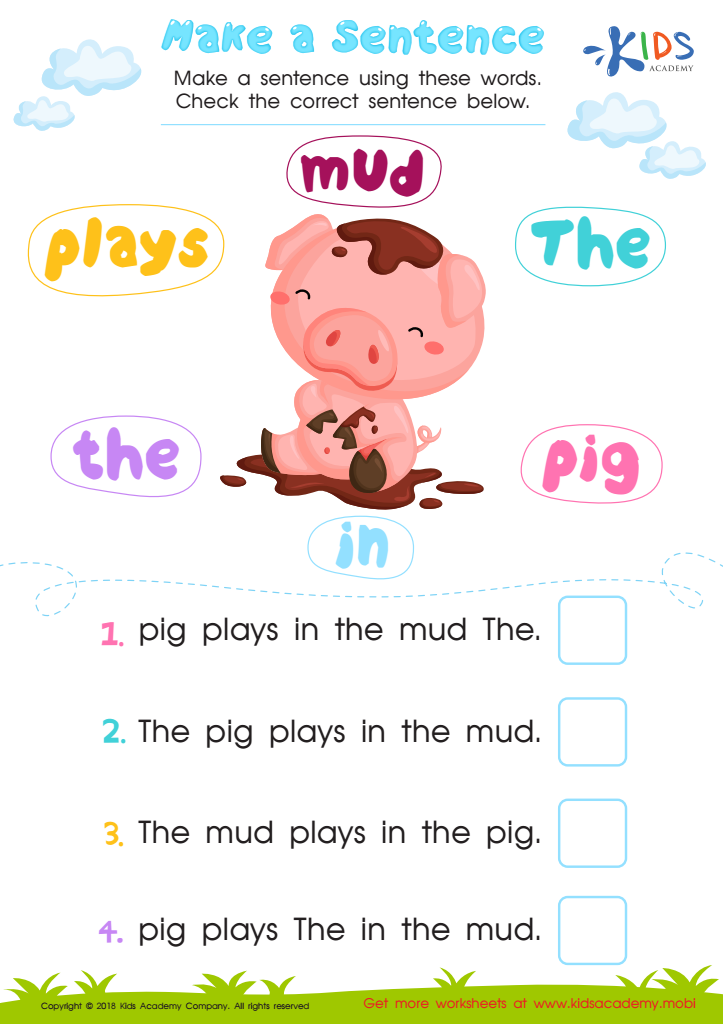Easy Writing worksheets activities for Ages 3-7
4 filtered results
-
From - To
Discover engaging and fun writing worksheets designed specifically for children ages 3-7 at Kids Academy! Our easy writing activities promote creativity and develop essential writing skills. Each worksheet encourages young learners to practice letter formation, word recognition, and sentence construction in a playful and interactive way. With colorful illustrations and relatable themes, children will enjoy exploring their imagination while enhancing their literacy development. Perfect for use at home or in the classroom, our worksheets provide enjoyable ways to support early writing skills. Visit our website to access a variety of free, printable resources that make learning to write a delightful experience!


Capitalization. Punctuation. Spelling: Assessment 2 Worksheet


Capitalization. Punctuation. Spelling: Assessment 1 Worksheet


Forming Sentences: Assessment 3 Worksheet


Assessment: Make a Sentence Worksheet
Parents and teachers should prioritize Easy Writing activities for children aged 3-7 because these formative years are crucial for developing essential language and literacy skills. Writing at an early age fosters fine motor skills, enhancing hand-eye coordination and grip, which are vital for children’s overall physical development. Engaging in writing activities, such as drawing, tracing letters, or creating simple sentences, also stimulates cognitive skills, encouraging creativity and critical thinking.
Furthermore, writing helps children express their thoughts and emotions, giving them a voice and enhancing their self-confidence. Early writing activities contribute to phonemic awareness and vocabulary development, laying the foundation for reading and comprehension skills that will be required later in their education.
Additionally, incorporating Easy Writing tasks can be fun and interactive, facilitating a positive attitude towards learning, which is pivotal during these impressionable years. By engaging young learners in a variety of writing experiences, parents and teachers can instill a lifelong love for literacy, ultimately supporting academic success and personal growth. Investing time in these activities now creates a rich literary environment, equipping children with not just the mechanics of writing but also the excitement and curiosity that underpins effective communication.
 Assign to My Students
Assign to My Students


















